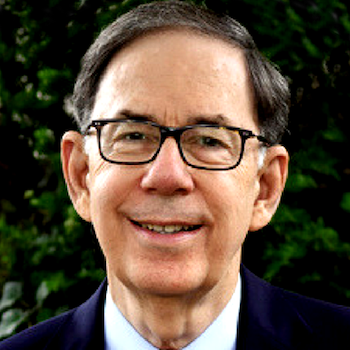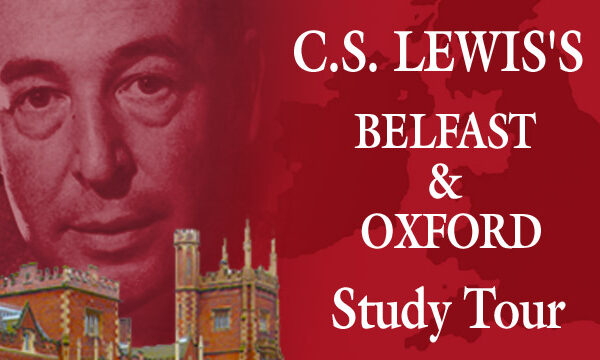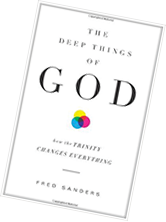Back to series

Recommended Reading:

Who Is God? (Part 2)
(This is a two-part series on Who Is God?. Part 1, Part 2,)
Click here to open a Print - Friendly PDF
In Part 1 of this article, I made brief mention of some of the attributes of God, giving special attention to God as the Creator of heaven and earth and as a God of holy love. It ended with an account of the catastrophic judgment of Judah and the recognition that God’s love can be so deeply violated by persistent, outrageous, unrepented sin that God’s righteousness and justice compel Him to act in judgment.
Before going further, we must pause and note that God’s judgment is a very unpopular idea today. What Richard Niebuhr observed of Liberal theology in the 1930s is growing in popularity today: “Liberalism believes in a God without wrath, who brings a man without sin, into a Kingdom without judgment, through the ministrations of a Christ without a cross.”1
Though the old Liberalism itself is not growing, this set of beliefs is becoming increasingly fashionable in other circles; it is implicit in Moralistic Therapeutic Deism (for an explanation of this term, see Part 1 of this article) and is increasingly explicit in other parts of the American church, including some that claim to be evangelical. The critical issue, however, is not what is fashionable but what is true. We must resist popular fashions, which regularly come and go, and anchor ourselves to the unchanging truths of God’s Word, which endures forever.
God’s Judgment and His Goodness
The truth concerning judgment is that it must always be seen against the backdrop of God’s goodness, from which flow His grace and love. God is not an arbitrary, capricious, vindictive tyrant. Scripture tells us that “The Lord is good; his steadfast love endures forever, and his faithfulness to all generations” (Ps. 100:5).2 Because God is good, He does good and not just to some, but to all: “he makes his sun rise on the evil and on the good, and sends rain on the just and on the unjust” (Matt. 5:45). God would always rather show mercy than bring judgment on His creatures: “Have I any pleasure in the death of the wicked, declares the Lord God, and not rather that he should turn from his way and live?” (Ezek. 18:23);
“I have no pleasure in the death of anyone, declares the Lord God; so turn, and live” (Ezek. 18:32). But He has given human beings the power of moral choice, and with it comes the possibility to choose not only good but also evil. When we go astray, God seeks to warn us and call us to repentance, as He did repeatedly for years with both Israel and Judah. He will use the gentlest means necessary to bring us back. But we can choose to ignore His call; we can refuse to hear and heed. When we do so, our deliberate, willful, continuing embrace of evil will eventually bring God’s judgment upon us as it did upon them. And we will have no one to blame but ourselves.
It is a very serious matter to provoke God’s wrath and trigger His judgment upon our lives. But even in the midst of His chastening blows, we can still forsake our sins and return to the Lord, who is willing to forgive, restore, and bless. A new chapter in life can one day unfold. This was certainly true of the inhabitants of Judah, who had provoked God’s wrath by their egregious sins and as a result were conquered and deported in large numbers to Babylon. After the destruction of Jerusalem, the writer of Lamentations, struggling with feelings that God had been cruel in His judgment, came to see that
the Lord will not cast off forever, but, though he cause grief, he will have compassion according to the abundance of his steadfast love;for he does not afflict or grieve the children of men (Lam. 3:31–33).
His hope in God’s goodness, grace, and love grew stronger:
Remember my afflictions and my wanderings, the wormwood and the gall! My soul continually remembers it and is bowed down within me. But this I call to mind, and therefore have hope: The steadfast love of the Lord never ceases; his mercies never come to an end; they are new every morning; great is your faithfulness. “The Lord is my portion,” says my soul, “therefore I will hope in him” (Lam. 3:19–24).
The steadfast love of the Lord was indeed seen again as He sustained the people of Judah during their seventy-year exile in Babylon and finally restored them to their beloved homeland, chastened to repentance and ready to follow Him once more. They rebuilt the walls of Jerusalem, constructed a new temple, and resumed life in the land amid great joy. This gives hope to those today whose lives have been shattered by sin and its consequences. Yes, God’s goodness continues on, and “if we confess our sins, he is faithful and just to forgive us our sins and cleanse us from all unrighteousness” (1 John 1:9).
God Reveals Himself as Unchanging
Because He is unchanging, God’s goodness and love, His righteousness and justice, and all His other attributes will continue forever, and this gives us great comfort. His nature and attributes are stable and dependable; He is not fickle and does not vacillate. He says, “For I the Lord do not change; therefore you, O children of Jacob, are not consumed” (Mal. 3:6). God’s unchanging nature is reaffirmed in the New Testament, when James says, “Every good gift and every perfect gift is from above, coming down from the Father of lights with whom there is no variation or shadow due to change” (James 1:17). God’s Word is forever settled in heaven and His promises will never change or fail. Therefore, we can always count on Him to be faithful to His character and His Word, and this gives an unshakable foundation for our faith.
God Reveals Himself as Omniscient
Our trust in the unchanging God of the Bible is strengthened as we remember that He is also the omniscient, all-knowing One. He is everywhere and nothing escapes His gaze. He knows everything that can be known, including all possible choices and their outcomes. “Am I a God at hand, declares the Lord, and not a God far away? Can a man hide himself in secret places so that I cannot see him? declares the Lord.
Do I not fill heaven and earth?” (Jer. 23:23–24). The apostle Paul affirms that “he is actually not far from each one of us, for ‘In him we live and move have our being’” (Acts 17:27–28). Similarly, the writer to the Hebrews tells us that “no creature is hidden from his sight, but all are naked and exposed to the eyes of him to whom we must give account” (Heb. 4:13). Nothing can take God by surprise, and nothing can touch our lives without His permission. Everything He sends or permits, He ultimately uses to advance our greatest good—to become more conformed to the likeness His Son (Rom. 8:28–30).
God Reveals Himself as Omnipotent
 Confidence in the supremacy of God over all creation strengthens our trust even more. He is the Lord God omnipotent, that is, all-powerful and sovereign over His creation. Moses says, “Behold, to the Lord your God belong heaven and the heaven of heavens, the earth with all that is in it . . . For the Lord your God is God of gods and Lord of lords, the great, the mighty, and the awesome God” (Deut. 10:14, 17). His purposes cannot be thwarted but will surely come to pass. Through Isaiah He says, “I am God, and there is no other; I am God and there is none like me, declaring the end from the beginning and from ancient times things not yet done, saying my counsel shall stand, and I will accomplish all my purpose” (Isa. 46:9–11). Neither men nor devils can thwart God’s purposes for the world or His purposes for our lives.
Confidence in the supremacy of God over all creation strengthens our trust even more. He is the Lord God omnipotent, that is, all-powerful and sovereign over His creation. Moses says, “Behold, to the Lord your God belong heaven and the heaven of heavens, the earth with all that is in it . . . For the Lord your God is God of gods and Lord of lords, the great, the mighty, and the awesome God” (Deut. 10:14, 17). His purposes cannot be thwarted but will surely come to pass. Through Isaiah He says, “I am God, and there is no other; I am God and there is none like me, declaring the end from the beginning and from ancient times things not yet done, saying my counsel shall stand, and I will accomplish all my purpose” (Isa. 46:9–11). Neither men nor devils can thwart God’s purposes for the world or His purposes for our lives.
God’s Revelation of Himself in the New Testament
Much more could be said about God’s attributes from the Old Testament, but we must now turn to God’s revelation of Himself in the New Testament, where we find that God is the same God of holy love as portrayed in the Old Testament. This has not been sufficiently grasped by some people, who are troubled by certain things in the Old Testament and conclude that they must reflect a primitive (and erroneous) understanding of God or, as someone said, “God before He became a Christian.” Such a view reflects a profound misunderstanding of the God of the Bible.
Far from presenting a God who is different from that of the Old Testament, the New Testament presents the same God working in new and somewhat unexpected ways in His self-revelation and the unfolding drama of redemption. It records the continuation of the divine plan that originated before the creation of the world.
In the New Testament, the God of the Old Testament reveals Himself further in the person of Jesus of Nazareth. In the first chapter of Matthew, we learn that Jesus is the long-awaited Messiah, who “will save his people from their sins.” But there is more: we are told without elaboration that Jesus is also “‘Immanuel’ (which means, God with us)” (Matt. 1:21, 23). This tantalizingly brief mention is developed further in the first chapter of John, where we read of Jesus,
In the beginning was the Word, and the Word was with God, and the Word was God. He was in the beginning with God. All things were made through him, and without him was not anything made that was made. In him was life, and the life was the light of men...
And the Word became flesh and dwelt among us, and we have seen his glory, glory as of the only Son from the Father, full of grace and truth (John 1:1–4, 14).
Jesus is here shown to have existed with God and as God before His appearance on earth in human form. He is also described as the Son of God, and He frequently refers to God as His Father, showing that, while He is indeed God, there is a distinction within God: God the Father and God the Son.
Of Himself, Jesus says, “I and the Father are one” (John 10:30), affirming not only His deity but also the oneness of God in the Old Testament. Jesus is the visible manifestation of the invisible God. His life demonstrated the same goodness, moral purity, and holy love of God seen in the Old Testament. He proclaimed the in-breaking of God’s kingdom and called everyone to repentance and faith (Mark 1:15).
He said that He came “not to be served but to serve, and to give his life as a ransom for many” (Matt. 20:28). He was full of grace and truth; full of compassion for the poor, the sick, and those in need; full of mercy to sinners. He was the Lamb of God, who surrendered Himself to death on the cross as an atoning sacrifice, making propitiation for the sin of the world (John 1:29) in order to reconcile all things to God the Father—all those who trust in Him as Lord and Savior and indeed the entire created order as well (Rom. 8:19–23).
When Philip said to Jesus, “Lord, show us the Father, and it is enough for us,” Jesus replied, “Whoever has seen me has seen the Father” (John 14:8–9). When Jesus appeared to the doubting apostle Thomas after the resurrection, Thomas immediately proclaimed, “My Lord and my God!” (John 20:28).
The person and work of Jesus Christ are acclaimed by the apostle Paul, a strongly orthodox monotheistic Jew who had an encounter with the risen Jesus on the road to Damascus. Paul said,
He is the image of the invisible God, the firstborn of all creation. For by him all things were created, in heaven and on earth, visible and invisible . . . all things were created through him and for him. And he is before all things and in him all things hold together . . . For in him all the fullness of God was pleased to dwell, and through him to reconcile to himself all things, whether on earth or in heaven, making peace by the blood of his cross (Col. 1:15–17, 19-20).
Similarly, the writer to the Hebrews says that
God has spoken to us by his Son, whom he appointed the heir of all things, through whom also he created the world. He is the radiance of the glory of God and the exact imprint of his nature, and he upholds the universe by the word of his power. After making purification for sins, he sat down at the right hand of the Majesty on high (Heb. 1:1–3).
Through His life, death, resurrection, and ascension, Jesus paid for the sins of the world and inaugurated the final stage of God’s kingdom in this fallen world, the stage in which we currently live. He now sits at the right hand of God the Father in heaven awaiting “the time for the restoring of all things . . .” (Acts 3:21), which will bring the resurrection and the consummation when He will make all things new (Rev. 21:5). Paul describes this great day,
For as in Adam all die, so also in Christ shall all be made alive. But each in his own order: Christ the firstfruits, then at his coming those who belong to Christ. Then comes the end, when he delivers the kingdom to God the Father after destroying every rule and every authority and power. For he must reign until he has put all his enemies under his feet. The last enemy to be destroyed is death. For “God has put all things in subjection under his feet.” But when it says, “all things are put in subjection,” it is plain that he is excepted who put all things in subjection under him. When all things are subjected to him, then the Son himself will also be subjected to him who put all things in subjection under him, that God may be all in all (1 Cor. 15:22–28).
What a glorious and empowering hope for all who know and love God and His Son! We have looked at God the Father and Jesus the Son of God. Now we come to the Holy Spirit, a divine Person who is also God. Many people have only vague ideas about the Holy Spirit, sometimes thinking of Him as an impersonal force or power and referring to Him as “it.”
Scripture refers to Him not only as the Holy Spirit, but also as the Helper, the Spirit of truth (John 14:17), the Spirit of God, and the Spirit of Christ (Rom. 8:9). The Holy Spirit was present at the creation of the world (Gen. 1:2) and was active in the Old Testament, notably in imparting gifts to select individuals and empowering them to carry out God’s special purposes. In the New Testament, the Holy Spirit overshadows Mary and brings about the conception of Jesus (Luke 1:35).
Thereafter, He leads and empowers Jesus throughout His earthly ministry. He is the divine agent of spiritual rebirth for God’s children (John 3:5–8), for through the work of the Spirit we are baptized into Christ (Rom. 6:3; 1 Cor. 12:13) and thus united with Him, sharing in all His spiritual blessings (Eph. 1:3). He imparts spiritual gifts to God’s people (1 Cor. 12:4–7) and empowers them for holy living (Rom. 8:13b; Gal. 5:16–18) and for kingdom mission and ministry (Acts 1:8).
In the Gospel of John, Jesus promises His followers that the Father will send the Holy Spirit as another Helper (paraclete), meaning one just like Himself (though invisible) to be with them (John 14:16). His work will be to help and strengthen, teach them all things, remind them of His words, bear witness of Jesus, and empower them to bear witness of Him as well, guide them into all truth, and glorify Him (John 14:26; 15:26–27; 16:12–15). He will also convict the world of sin, righteous, and judgment (John 16:8–11).
A helpful summary of the principal distinction between the work of Jesus and that of the Holy Spirit is found in the title of John Murray’s excellent little book Redemption Accomplished and Applied.3 Jesus accomplished redemption through His atoning death and resurrection; the Spirit applies that work in its many facets in the lives of God’s children. The Holy Spirit is included with the Father and the Son in the baptismal formula Jesus gave His disciples (Matt. 28:19), indicating His equality with both. Paul demonstrates the deity of the Holy Spirit when he equates the Spirit of God and the Spirit of Christ with Christ Himself (Rom. 8:9–10). Paul also includes the Holy Spirit in the Trinitarian blessing of 2 Corinthians 13:14, indicating His coequal nature with the Father and Son.4
The Trinity

Looking back over Parts 1 and 2 of this all-too-brief treatment, we have seen in the Old Testament some of the key attributes of the one God, who is God the Father. We have seen in the New Testament that Jesus and the Holy Spirit are also God.
Where does this leave us? Skeptics might say it demonstrates how hopelessly contradictory the Bible is. Muslims and Jews say it leaves us with three gods, thus polytheism. Christians say it reveals the deity of Father, Son, and Holy Spirit—the Trinity. (Although to be honest, Christians can sometimes have a muddled understanding of what this means and end up thinking in terms of three Gods rather than one God in three Persons.)
What we actually see in this study is that the God of the Old Testament has revealed Himself progressively over the centuries, with the deity of the Son and the Holy Spirit coming into clearer focus in the New Testament. It is as if the New Testament reveals God “from the inside,” as He is now seen to subsist in three Persons: the Father, the Son, and the Holy Spirit. From ancient times, the church has used the word Trinity to describe this reality. Though the word does not appear in the Bible, it has been found useful for talking about the Bible’s teaching of one God who has eternally subsisted in three Persons, each of whom is fully God.
It is important to note that the word Trinity does not mean three individual Gods, which would be tritheism or polytheism. Rather, Trinity describes three self-distinctions within the one God, related to their relationships and their roles in the world. The role of the Father has been described as primarily in conceiving and initiating creation and redemption; the role of the Son as primarily in accomplishing redemption; and the role of the Holy Spirit as primarily in applying the work of redemption in the lives of God’s people. In their respective roles in the world, the Three exist in a relationship of self-giving love and unified purpose and will, in which each serves the others.
If you find this hard to grasp, you are not alone. The Trinitarian nature of the one God is a mystery that has challenged the greatest minds of the church. Although the Trinity can be understood up to a point, it is not fully comprehensible by fallen human minds. No one has ever been able to fully plumb the depths of it and offer a satisfactory explanation of how God can be One and yet three. But then, who can understand even his or her own “personhood”; what is this “I” that we use to speak of ourselves? Those who have pondered the Trinity most deeply (some of the brightest minds in history) have gone only so far before confessing that they are unable to penetrate the mystery and have fallen to their knees in reverence and awe.

Although at a certain point the Trinity transcends the categories of human language, there are a number of truths about the Trinity that are accessible to us. A prayerful and reverent study of them will be most edifying to our souls. Here is just one to ponder and meditate upon: in the world to come, which will be a world of love, we shall know the Father, the Son, and the Holy Spirit much more fully than we can possibly imagine in this present world (1 Cor. 13:12); our feeble efforts to love God and others will be swallowed up in the self-giving love that has existed eternally among the three Persons of the Trinity and will be our portion, forever, and ever, and ever. What a glorious thought! May this truth fuel our desire for the one true God, the God of holy love, Father, Son, and Holy Spirit, and deepen our devotion to Him and our dedication to His service.
|
Notes: |
|||

Thomas A. Tarrants
Author, President Emeritus, CSLI Thomas A. Tarrants is President Emeritus of the C.S. Lewis Institute. After serving twelve years as president and nine years as vice President, he retired from his position as Vice President for Ministry and Director, Washington Area Fellows Program, with CSLI in June 2019. He holds a Masters of Divinity Degree, as well as a Doctor of Ministry Degree in Christian Spirituality. Tom is an ordained minister in the Evangelical Church Alliance and a member of the Evangelical Theological Society. He spends his time writing, mentoring, consulting and traveling. His life story is told in Consumed by Hate, Redeemed by Love, published by Thomas Nelson Publishers.Recommended Reading:
Fred Sanders, The Deep Things of God: How the Trinity Changes Everything (Crossway, 2010)
The doctrine of the Trinity is widely taught and believed by evangelicals, but rarely is it fully understood or celebrated. Systematic theologian Fred Sanders, in The Deep Things of God, shows why we ought to embrace the doctrine of the Trinity wholeheartedly and without reserve, as a central concern of evangelical theology. Sanders demonstrates, with passion and conviction, that the doctrine of the Trinity is grounded in the gospel itself. Written accessibly, The Deep Things of God examines the centrality of the Trinity in our salvation and the Trinity’s presence in the reading of the Bible and prayer. Readers will understand that a robust doctrine of the Trinity has massive implications for their lives.
 COPYRIGHT: This publication is published by C.S. Lewis Institute; 8001 Braddock Road, Suite 301; Springfield, VA 22151. Portions of the publication may be reproduced for noncommercial, local church or ministry use without prior permission. Electronic copies of the PDF files may be duplicated and transmitted via e-mail for personal and church use. Articles may not be modified without prior written permission of the Institute. For questions, contact the Institute: 703.914.5602 or email us.
COPYRIGHT: This publication is published by C.S. Lewis Institute; 8001 Braddock Road, Suite 301; Springfield, VA 22151. Portions of the publication may be reproduced for noncommercial, local church or ministry use without prior permission. Electronic copies of the PDF files may be duplicated and transmitted via e-mail for personal and church use. Articles may not be modified without prior written permission of the Institute. For questions, contact the Institute: 703.914.5602 or email us.
-
Recent Podcasts
A Welcome Change in Apologetics
by Randy Newman, Aimee Riegert on April 19, 2024We’re burdened for our friends who don’t know...Read More
-
Questions That Matter Podcast – Samuel James and Digital Liturgies
by Samuel James, Randy Newman on April 19, 2024
-
The Side B Stories – Dr. James Tour’s story
by Jana Harmon, James Tour on April 12, 2024
-
Recent Publications
Isn’t Morality Relative?
by Christopher L. Reese on April 1, 2024It is widely accepted in the Western world...Read More
-
Do Muslims and Christians Worship the Same God?
by Andy Bannister on March 1, 2024
-
Artificial Intelligence and Its Impacts on Humanity
by John Lennox on February 13, 2024
0
All Booked
0.00
All Booked
0.00
All Booked
20599
GLOBAL EVENT: 2024 Study Tour of C.S. Lewis’s Belfast & Oxford
https://www.cslewisinstitute.org/?event=global-event-2023-study-tour-of-c-s-lewis-belfast-oxford-2&event_date=2024-06-22®=1
https://www.paypal.com/cgi-bin/webscr
2024-06-22

Next coming event
Days
Hours
Minutes
Seconds
GLOBAL EVENT: 2024 Study Tour of C.S. Lewis’s Belfast & Oxford
On June 22, 2024 at 12:00 pmat Belfast, Northern Ireland & Oxford, EnglandSpeakers

Thomas A. Tarrants
Author, President Emeritus, CSLI
Team Members







